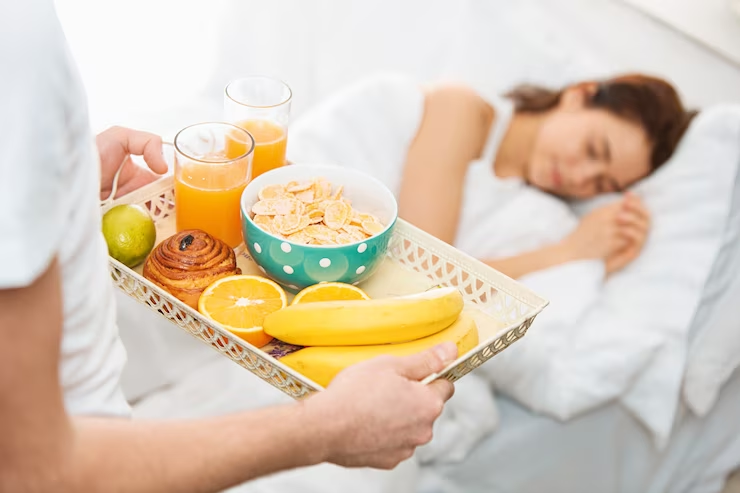Sleep is an essential aspect of our overall health and well-being, and it plays a vital role in our physical and mental functioning. In South Africa, where nutrition and health are of great concern, understanding the role of nutrition in promoting better sleep is crucial. What we eat and drink can significantly impact our sleep quality, duration, and overall sleep-wake cycle. In this article, we will explore the connection between nutrition and sleep in South Africa and discuss dietary strategies to enhance sleep.
- Balancing Macronutrients: The macronutrients we consume – carbohydrates, proteins, and fats – can influence sleep. Strive for a well-balanced diet that includes complex carbohydrates, such as whole grains, fruits, and vegetables, which provide sustained energy throughout the day and support the production of sleep-inducing neurotransmitters. Include lean proteins like poultry, fish, legumes, and nuts, as they contain tryptophan, an amino acid precursor to serotonin and melatonin, which promote relaxation and sleep. Healthy fats from sources like avocados, olive oil, and nuts are also important for overall health and may aid in sleep regulation.
- Incorporating Sleep-Supportive Micronutrients: Certain micronutrients play a role in sleep regulation and can support better sleep. Magnesium, found in foods like leafy greens, nuts, and seeds, can help calm the nervous system and promote relaxation. Vitamin B6, present in fish, poultry, bananas, and chickpeas, is involved in the production of melatonin. Additionally, foods rich in potassium, such as bananas and sweet potatoes, may help prevent nighttime leg cramps, which can disrupt sleep.
- Avoiding Stimulants: Caffeine and alcohol can interfere with sleep quality and disrupt the sleep-wake cycle. Limit or avoid consuming caffeine-containing beverages like coffee, tea, and energy drinks in the afternoon and evening. Alcohol, while initially inducing drowsiness, can disrupt sleep architecture and lead to more fragmented and less restorative sleep. Instead, opt for caffeine-free herbal teas or warm milk, which contains tryptophan and may promote relaxation.
- Timing of Meals and Snacks: Eating large or heavy meals close to bedtime can cause discomfort and make it harder to fall asleep. Aim to have your last substantial meal a few hours before bedtime. However, if you feel hungry before bed, a light snack containing a small amount of carbohydrates and protein, such as a banana with nut butter or a small bowl of yogurt, may help promote better sleep.
- Hydration: Staying hydrated is important for overall health, including sleep. However, drinking excessive fluids close to bedtime may lead to disruptive nighttime trips to the bathroom. It’s essential to balance hydration throughout the day and moderate fluid intake in the evening hours.
- Personalized Approaches: Every individual may respond differently to specific foods or dietary patterns. Pay attention to how certain foods or beverages affect your sleep. Some people may find that certain foods or spices, such as spicy dishes or acidic foods, can cause indigestion or heartburn, leading to sleep disruptions. Identifying and avoiding such triggers can contribute to better sleep quality.
- Healthy Lifestyle Habits: In addition to nutrition, adopting a healthy lifestyle can positively impact sleep. Engaging in regular physical activity, managing stress through techniques like meditation or deep breathing, and creating a consistent sleep routine can all contribute to better sleep outcomes.
It’s important to note that nutrition alone cannot guarantee better sleep, as various factors contribute to sleep quality and quantity. If you continue to experience persistent sleep problems or suspect an underlying sleep disorder, it is advisable to consult with a healthcare professional.
By adopting a balanced and sleep-supportive diet, South Africans can optimize their nutritional intake and improve their sleep quality. Prioritizing healthy eating habits and a holistic approach to sleep hygiene can lead to more restful nights and overall well-being.










